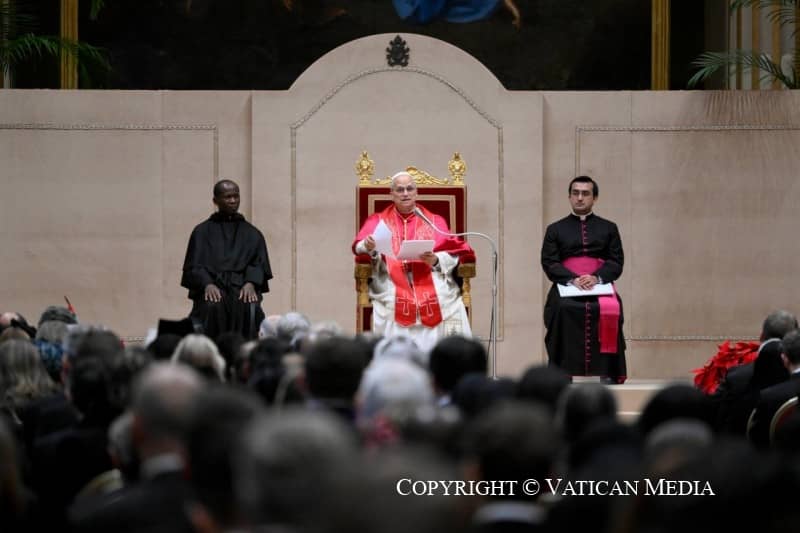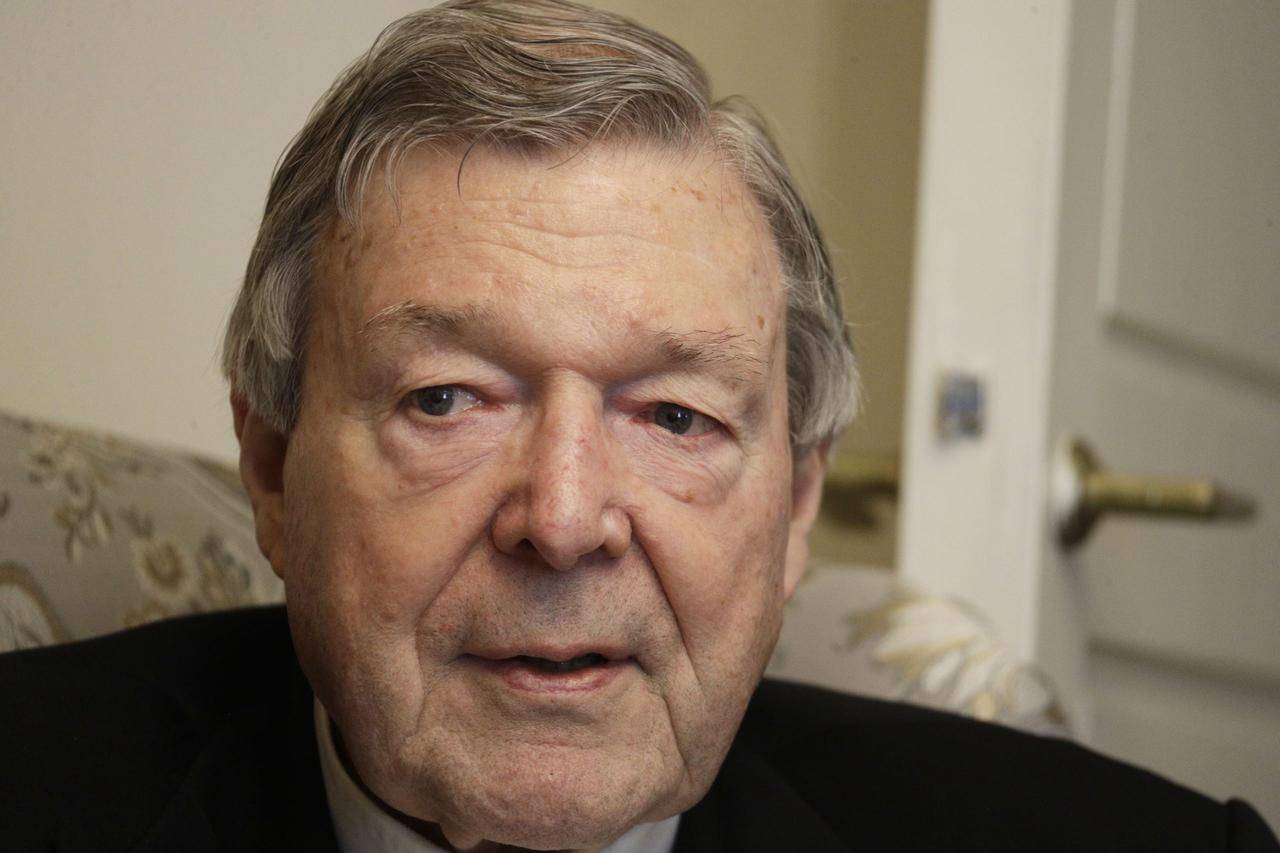ROME – Anyone who’s watched “The West Wing,” or who’s hooked on CSPAN – and, frankly, I suspect these are often the same people – knows that in the White House, Friday is “take out the trash day.” In PR terms, stories considered embarrassing by the administration get dumped on the press Friday afternoon, in the hope no one will pay much attention in the rush to the weekend.
In the Vatican, Saturday morning is actually a work day, so its equivalent of taking out the trash comes in the noontime Saturday news bulletin. The calculation is that anything announced therein will be largely ignored, since, in Italian psychology, Saturday afternoon is the prelude to the sacrosanct calm of Sunday.
This past Saturday brought a doozy of a trash dump, with the announcement of no fewer than four bishops’ appointments, each one of which, under other circumstances, might have triggered at least a small-scale media sensation.
Each, in a sense, also points to an unresolved question mark facing the Francis papacy.
The cavalcade began in Sierre Leone, where Pope Francis tapped Bob John Hassan Koroma as the new bishop of the Diocese of Makeni, located in the north-central part of the country about 120 miles from the capital city of Freetown.
What makes the choice noteworthy is that Makeni has been a vacant episcopal see since 2015, and it hasn’t had a residential bishop since 2012. In January of that year, Pope Benedict XVI named Henry Aruna the Bishop of Makeni, but he wasn’t ordained until a year later, and in Freetown, because the clergy and people of his new diocese refused to let him in.
It turns out that Aruna is part of the Mende people, while the majority ethnic group in Makeni is the Temne. That majority took the choice of a Mende bishop as an insult, and refused to allow him to take possession of the diocese. Three years later Aruna quietly was named the auxiliary bishop of Kenema in the county’s southeast, while Makeni was assigned an apostolic administrator.
Such ethnic tensions surrounding bishops’ nominations are not uncommon in Africa – recall the fracas in Ahiara, Nigeria, where Peter Okpaleke was named bishop in 2012 but never set foot in the diocese, despite a 2017 threat by Pope Francis to suspend every priest who refused to accept him. Eventually the pope blinked, accepting Okpaleke’s resignation in 2018 and eventually naming him a cardinal as a sort of consolation prize.
The Makeni nomination, therefore, is a reminder that despite the adoring crowds who flocked to see Francis on his recent trip, African Catholicism nevertheless still faces challenges that Vatican has not yet figured out.
Next, the Vatican also announced on Saturday that Lithuanian Father Rolandas Makrickas, who’s been acting pro tem as the special commissioner of the papal basilica of St. Mary Major since December 2021, has been confirmed in that role and elevated to the rank of Archbishop.
What make this move curious is that, like the other papal basilicas in Rome, St. Mary Major still has an Archpriest who’s theoretically in charge in the person of 77-year-old Polish Cardinal Stanislaw Rylko, former head of the Pontifical Council for the Laity who’s been at St. Mary Major since 2016.
Aside from the fact that Rylko is an old-school Catholic conservative associated with the Pope John Paul II years, and thus not really Francis’s cup of tea, there have also been persistent rumors of financial irregularities at the basilica, which were compounded by shortfalls caused by the coronavirus pandemic.
Still, the confirmation of Makrickas as “commissioner” – an extraordinary role which, by definition, is usually designed to be temporary – raises a couple of questions to which, so far, we don’t have answers.
First, if the situation is so bad, why doesn’t Francis simple fire Rylko and appoint new leadership? Why keep him on the books, only to assign most of his authority to someone else? And, second, if the problem is money, is the solution really to appoint a former official of the financial administration of the Secretariat of State, several of whose erstwhile colleagues are currently facing trial for their roles in a $400 million London real estate fiasco?
Third up, the Saturday news bulletin announced that Pope Francis has tapped Carlos María Domínguez as the new bishop of the Diocese of San Rafael, located in the wine-producing region of Mendoza in the center of the country.
Domínguez replaces Bishop Eduardo María Taussig, who resigned in 2022 well ahead of the normal retirement age, following a bitter controversy over the closure of the Santa María Madre de Dios Seminary in San Rafael, which had been one of the most prolific in Latin America in terms of its student population, but which had a reputation for fostering a more traditional spirituality at odds with the progressive ethos of the Francis papacy.
Things came to a head in summer 2020, when Taussig announced that as part of anti-Covid protocols, communion in the diocese could only be administered in the hand, not on the tongue in a kneeling position. The perception was that resistance to the decree was centered in the seminary, which led to the dramatic decision in July 2020 to shut it down and distribute its students to other centers of formation.
Protests included public recitations of the rosary in front of the bishop’s residence and also caravans of cars in the city. The new appointment, therefore, is another reminder that a decade into his papacy, Francis still hasn’t quite navigated the relationship with the more conservative and traditional wing of the church.
Finally, Saturday also brought the resignation of Cardinal Tom Collins in Toronto and the appointment of his successor, 51-year-old Auxiliary Bishop Frank Leo of Montreal, who assumed that post only last September.
Toronto is one of a handful of pace-setting archdioceses in the English-speaking world, akin to New York, Westminster, Dublin and Sydney. It contains nearly 2 million Catholics and 225 parishes, as well as one of the most ethnically and linguistically diverse Catholic populations in the world.
Leo is a product of the Vatican’s diplomatic service and served as the secretary general of the Canadian bishops’ conference from 2015 to 2021, where he drew generally positive reviews as a capable administrator and an affable personality.
One could argue that Leo is the single most important appointment Francis has made in the English-speaking Catholic world, simply because of his age. Unless he resigns in the meantime, or gets a gig in Rome, Leo is set up to rule the roost in Toronto for at least a quarter-century, since it’ll be 24 years before he hits the retirement age of 75.
Cardinals Blase Cupich in Chicago, Joseph Tobin in Newark, Robert McElroy in San Diego and Wilton Gregory in Washington, by way of contrast, were named to those posts in their mid-60s to early 70s, meaning Leo could be around for a decade and a half after they’re gone.
For sure, what Francis may be saying about the future of English-speaking Catholicism with this choice deserves a careful look.
It’s not hard to understand why the Vatican didn’t exactly wave a red flag and scream “pay attention!” when rolling out these news items. Perhaps, however, as time wears on, these stories will draw the scrutiny that each arguably deserves.











